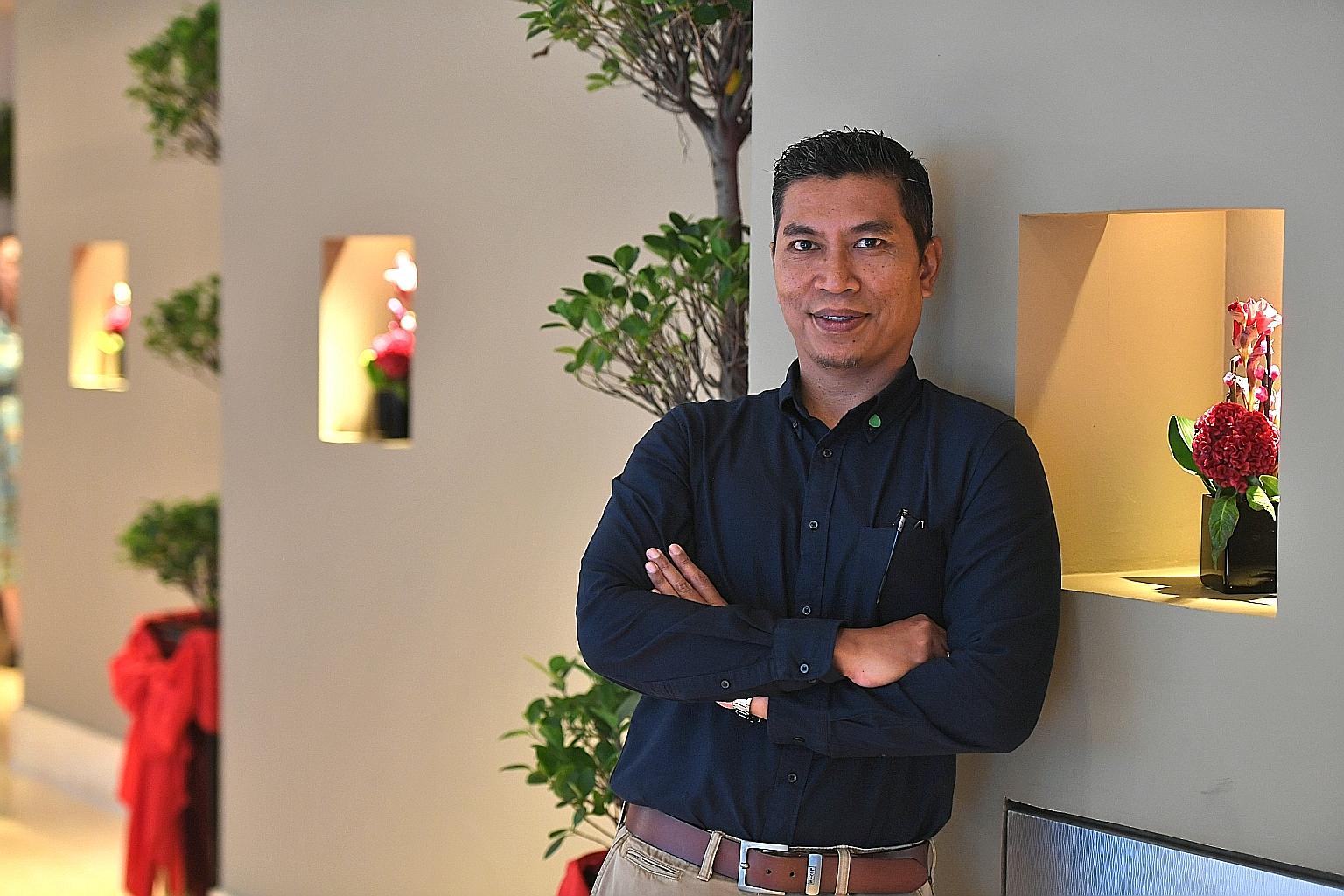Reskilling efforts for electronics sector ramped up
Expanded retraining programmes for workers, firms to tap new opportunities in the industry
Sign up now: Get ST's newsletters delivered to your inbox

Mr Effandi Sajari has benefited from the Professional Conversion Programme. After 19 years in the power sector, he joined the semiconductor industry last year, and now earns about 10 per cent more.
ST PHOTO: DESMOND FOO
In this era of gadgets and gizmos aplenty, the world of electronics is constantly in flux.
To help workers in this industry cope, the Workforce Singapore (WSG) will work with the Singapore Semiconductor Industry Association (SSIA) and other industry stakeholders to ramp up reskilling efforts that benefit workers and companies, Minister for Manpower Josephine Teo said yesterday.
While some areas such as consumer electronics have taken a hit, there are opportunities in others, driven by the Internet of Things, artificial intelligence and autonomous vehicles, WSG said.
"As our economy restructures, it is a good time for companies to capitalise on this period of moderate growth to build up internal mobility and capabilities," Mrs Teo told employers during the Singapore Semiconductor Industry Association Chinese New Year dinner.
"(This) will help to prepare you to harness new opportunities in the longer run, by training up and reskilling workers and new mid-career hires today for tomorrow."
The Government will also lend its support, she said.
For one thing, the training capacity for the current Professional Conversion Programmes for electronics engineers and electronics assistant engineers will be increased.
Since these programmes were launched in November 2016, 30 multinational corporations and small and medium-sized enterprises have hired and retrained almost 900 local professionals, managers, executives and technicians (PMETs), said Mrs Teo.
Now, another 1,000 more PMETs are expected to benefit over the next 31/2 years starting from last November, with new or enhanced job roles in areas such as production, facilities management, research and development, automation and integration, and technical support.
Mr Effandi Sajari, 47, was one who benefited from the retraining programme. After working for 19 years in the power sector, he joined the semiconductor industry last year, and is now a senior associate engineer at GlobalFoundries.
He now manages clean-room equipment that ensures optimal levels of humidity, temperature and pressure for wafer fabrication.
"Through the programme, I learnt how to manage the tools involved in the clean room," he said. He now earns about 10 per cent more than at his previous job.
WSG and SSIA have also rolled out a pilot Place-and-Train Programme for electronics operators, Mrs Teo said.
The three-month programme aims to equip mid-career operators and existing rank-and-file workers with skills to take on new or enhanced roles in areas in the electronics and semiconductor industries.
The pilot aims to benefit about 50 rank-and-file job seekers for a start, but could be scaled up if there is stronger demand, Mrs Teo said.
Employers can benefit from the experience of mid-career PMETs who want to further develop themselves, said Mr Rajan Rajgopal, president and chief executive of DenseLight Semiconductors, which sent its staff for retraining under the Professional Conversion Programme.
"The retraining could help them channel their experience and willingness to learn into the industry, and become a productive contributor to the company."


